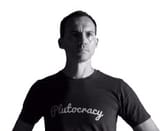Interview: Nicola Verlato (Domenico Quaranta, ArtPulse)
Nicola Verlato, "Gator", 2008 (oil on wood panel) I[mage courtesy of the artist]
excerpt:
"Domenico Quaranta: To tell the truth, there is a lot of Toryism in video games. Some weeks ago I was on a panel with some conceptual artists, those who design landscapes and characters for video games, and I was astonished when they told me that they drew inspiration from… John Singer Sargent. Anyway, I see your point: a video game is like a bomb hidden in a Vuitton bag. What’s really disruptive is its inner machinery. Moreover, if low and popular culture – from cinema to video games, from comics to fantasy card games – inherited the traditional approach to storytelling, they turned it into something completely different. What’s your relationship with this low-brow approach to storytelling and image making?
Nicola Verlato.- If liberal democracies and industrialism were what made modernity different from the previous models of society, the low and popular narrative forms have probably been the real cultural product of modernity: they were produced employing industrial processes and they were intended to reach as many people as possible with a clear and intelligible language in the spirit of democracy.
I’m not sure if the avant-garde was incarnating the progressive spirit of the twentieth century. Instead, I think about it as a cultural and social resistance of an old aristocratic order that needed, and still needs, the language of art in order to create social differences through the use of complex linguistic codes of difficult, and sometimes cryptic, interpretation. If the video game artists you met told you that they were inspired by Sargent (an artist considered conservative in a modernist perspective), it is probably because the language of the artistic avant-garde is completely useless in the process of making a video game. Furthermore, if video games are the artistic-technological avant-garde of our times, we should probably start looking at the relationship between Sargent and the avant-garde in a different way: while Sargent is still extremely influential, Malevich has already exhausted his role in shaping our times.
This situation reminds me of what happened in the music field. In the last forty years we have faced the complete failure of avant-garde music in shaping our cultural landscape. For the old high musical forms, the only way to survive has been by reconsidering what was thrown away by the avant-garde: tonality, rhythm and harmony. “One day the postman will whistle my melodies,” said Arnold Schoenberg. It never happened. What happened instead was the invasion of rock and pop music in every recess of our lives thanks to the industrial processes of production and distribution and the use of a kind of “conservative” language that Boulez, not so long ago, called “a fascist product.”
Young composers today, especially in America, are trying to combine the language of pop music in the complex structures of high music. This is what I’m trying to do in my paintings, as well as what other painters are doing in this country." (Artpulse)
Link: Domenico Quaranta talks to Nicola Verlato (Artpulse)
Link: Nicola Verlato
